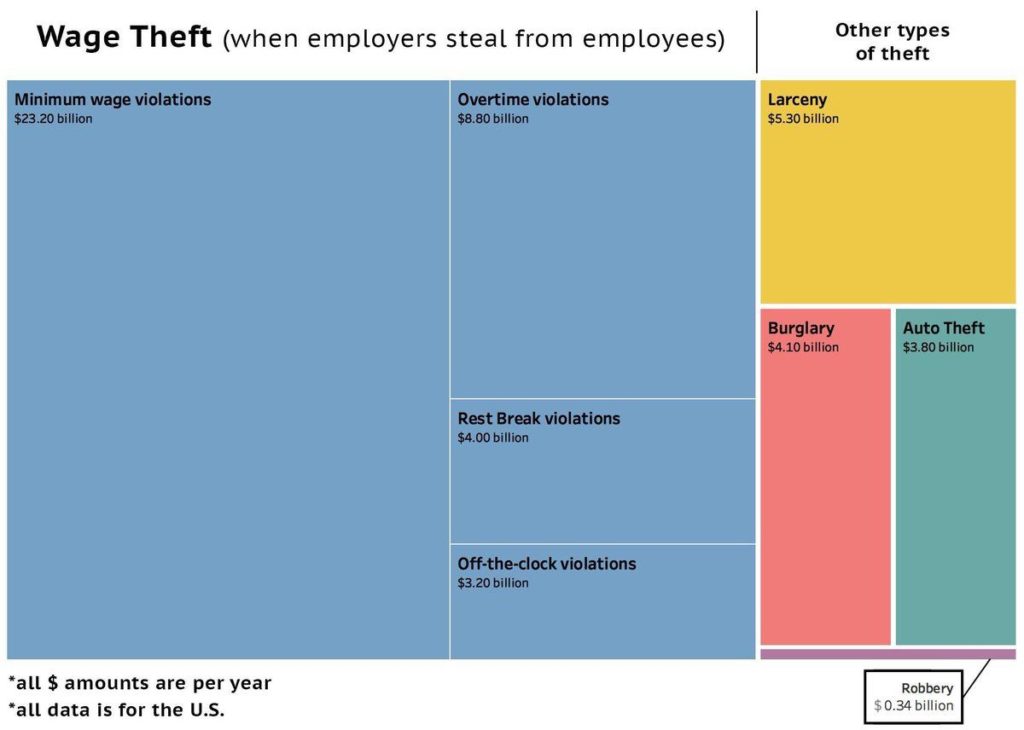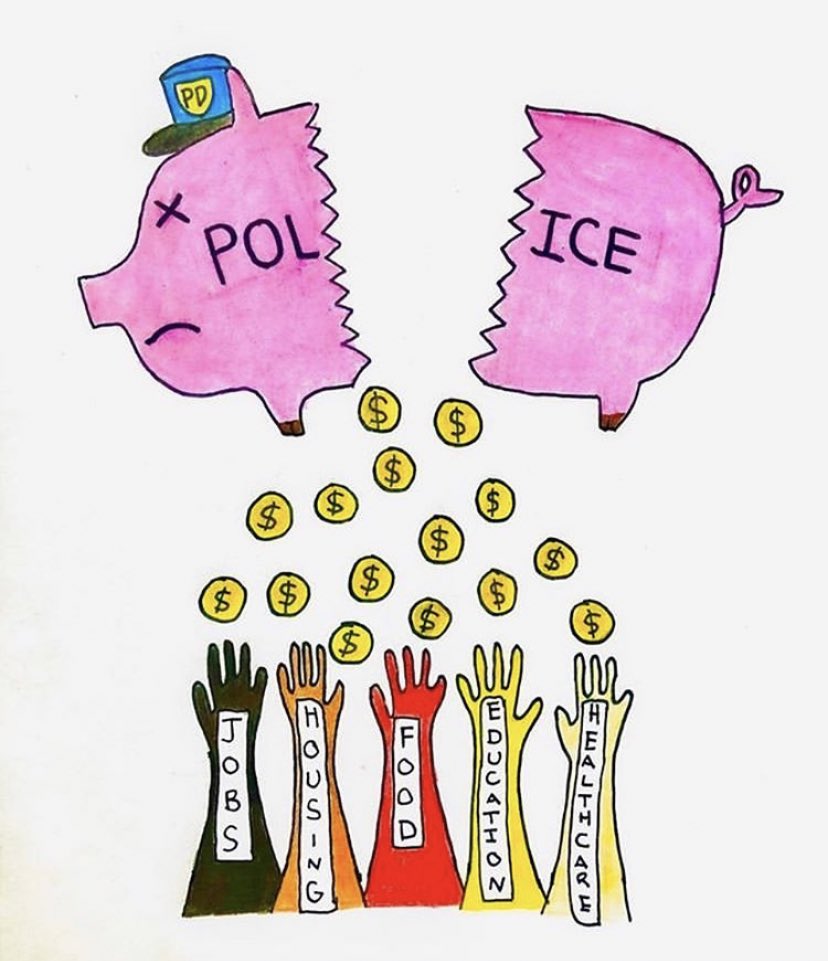In the wake of the police murder of Trayford Pellerin and attempted murder of Jacob Blake, it& #39;s high time we talk about why we say #AbolishThePolice again since the message didn& #39;t seem to stick the first time.
#LATechYDSAthreads
#LATechYDSAthreads
To understand #Abolition, we have to lay some groundwork first. Let& #39;s start with crime.
We think of crime as a synonym for harm. If someone does something criminal, we often think of them as having done some harm to another person or to society and that they must be punished.
We think of crime as a synonym for harm. If someone does something criminal, we often think of them as having done some harm to another person or to society and that they must be punished.
Crime is not a synonym for harm though.
Crime is anything deemed against the law. Because lawmaking is political, so too is crime a political term. For example: it is a federal crime to possess marijuana, but is anyone harmed by a single person possessing a bit of weed?
Crime is anything deemed against the law. Because lawmaking is political, so too is crime a political term. For example: it is a federal crime to possess marijuana, but is anyone harmed by a single person possessing a bit of weed?
Another good example is theft.
Stealing items from a store is a crime. If you are caught stealing, you can face jail time.
Stealing wages from workers is legal. Employers steal roughly $39.2B in wages from workers every year via min. wage and OT violations. This is not a crime.
Stealing items from a store is a crime. If you are caught stealing, you can face jail time.
Stealing wages from workers is legal. Employers steal roughly $39.2B in wages from workers every year via min. wage and OT violations. This is not a crime.
In that scenario, who is harmed more by theft? Billion-dollar corporations that lose at most a few hundred dollars, or workers living in poverty losing hundreds or thousands of dollars individually every year?
This is why crime =/= harm.
This is why crime =/= harm.
Now we must understand the police& #39;s role in this system.
We are taught that the police exist to "prevent crime" and "protect and serve."
If crime does not always mean harm and harm is not always a crime, then what are the police preventing really? And who do they protect?
We are taught that the police exist to "prevent crime" and "protect and serve."
If crime does not always mean harm and harm is not always a crime, then what are the police preventing really? And who do they protect?
Now we look to the history of policing for answers.
The first police forces in the US were patrols formed to hunt down fugitives from slavery. They were formalized under the laws like the Fugitive Slave Act and their existence was solely to protect and serve white supremacy.
The first police forces in the US were patrols formed to hunt down fugitives from slavery. They were formalized under the laws like the Fugitive Slave Act and their existence was solely to protect and serve white supremacy.
After the abolition of slavery, the South was without a free (read: stolen) labor force so they began to criminalize Black people.
The police adapted to this role by hunting down Black people for arbitrary "crimes" such as owning businesses or drinking alcohol while being Black.
The police adapted to this role by hunting down Black people for arbitrary "crimes" such as owning businesses or drinking alcohol while being Black.
The wording of the 13th Amendment outlaws slavery **except as punishment for a crime**, so by criminalizing Black people, slaver capitalists were able to preserve their stolen labor force through prison labor and Convict Leasing programs.
The police were used to steal this labor force back by "upholding the law" to imprison Black people.
The police upheld segregation and Jim Crow laws. The police were complicit or actively participated in mob lynchings. The police "protect and serve" property and white supremacy.
The police upheld segregation and Jim Crow laws. The police were complicit or actively participated in mob lynchings. The police "protect and serve" property and white supremacy.
In this context, how has policing changed in the 21st Century?
Well, it hasn& #39;t really. It is still a racist institution to its core. Many of the laws that police uphold are racialized and linked to poverty that is forced mainly on people of color.
Well, it hasn& #39;t really. It is still a racist institution to its core. Many of the laws that police uphold are racialized and linked to poverty that is forced mainly on people of color.
The police receive a disproportionate amount of funding to preserve these institutions. They are given military equipment through the 1033 Program, giving arms companies more business and police more tools to oppress. Meanwhile, they solve less than 50% of all crimes reported.
They clear about 60% of murders, less than 33% of rape/SA cases, even less for property crimes like theft and burglary. And those numbers are only for crimes reported to the police, which are much lower than the amount of actual harm that takes place.
At the same time, they are given deadly weapons and trained to be "warriors" who "fight crime to protect the innocent." This warrior mentality encourages violence and escalation and they take it upon themselves to murder civilians.
They create more harm than they prevent when "fighting crime" and commit many crimes they are never punished for, such as murder, assault, rape, domestic abuse, and theft (primarily through civil asset forfeiture).
The police don& #39;t "prevent crime" in any way, they just show up after the fact to arrest someone.
Things that really "prevent crime" are programs that return power back to communities that have been harmed, including reparations and social services.
Things that really "prevent crime" are programs that return power back to communities that have been harmed, including reparations and social services.
That is why we say #Abolish the police, not reform.
Abolition is not solely an act of destruction, it is also an act of creation in place of the old system.
We can defund and eventually abolish the police and use the freed budget to fund programs that really help people.
Abolition is not solely an act of destruction, it is also an act of creation in place of the old system.
We can defund and eventually abolish the police and use the freed budget to fund programs that really help people.
When people& #39;s needs are met, they are less likely to turn to survival tactics that have been criminalized, such as theft, sex work, and drug trafficking.
Why must we punish our community members just for trying to get by when we could be helping them and thriving together?
Why must we punish our community members just for trying to get by when we could be helping them and thriving together?
This thread was another long one and didn& #39;t even get into the specifics of much of abolition.
We barely covered mass incarceration and how prisons are an extension of slavery. We didn& #39;t even fully cover how police operate and perpetuate violence.
We barely covered mass incarceration and how prisons are an extension of slavery. We didn& #39;t even fully cover how police operate and perpetuate violence.
If you& #39;re interested in learning more, let us know! And if you want to do further reading for yourself, we suggest starting with "Are Prisons Obsolete?" by Angela Davis and "The End of Policing" by Alex Vitale.
Join our YDSA today to access those and more in our digital library!
Join our YDSA today to access those and more in our digital library!
Much of the source material for this thread is from "Are Prisons Obsolete?" by Angela Davis. It& #39;s a short read at only 120ish pages and is incredibly useful in putting our modern prison system in context

 Read on Twitter
Read on Twitter





